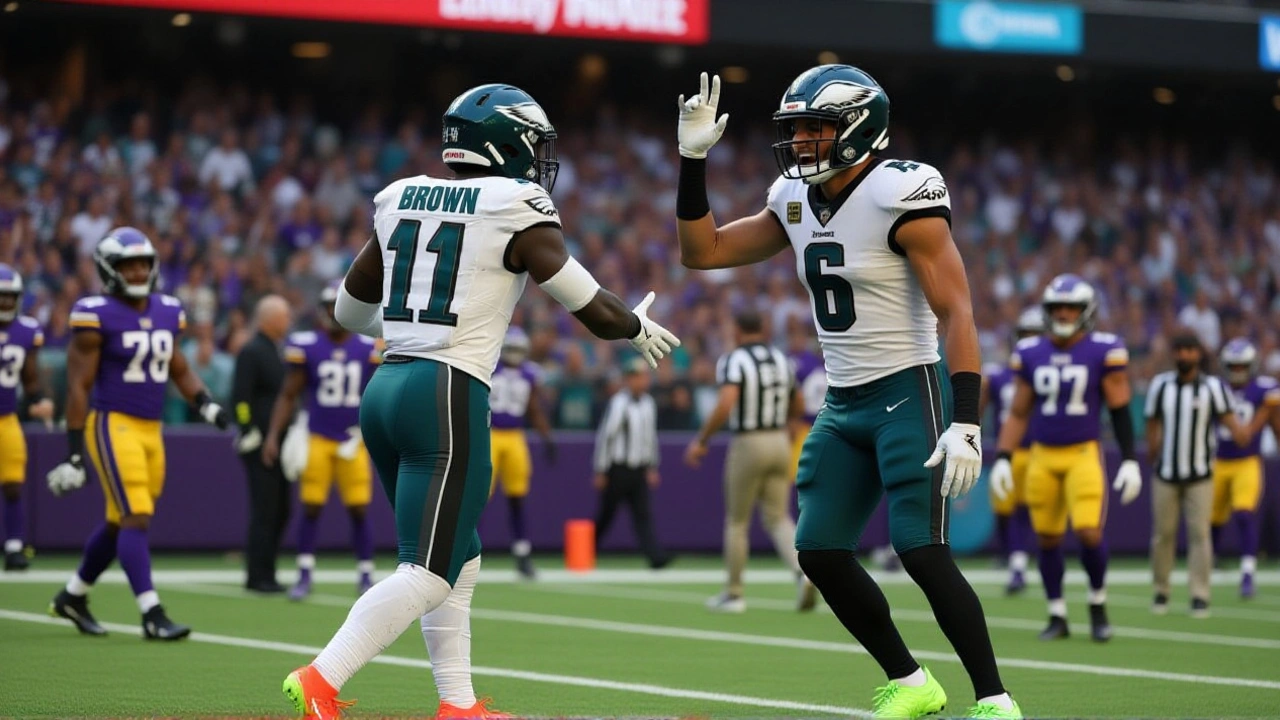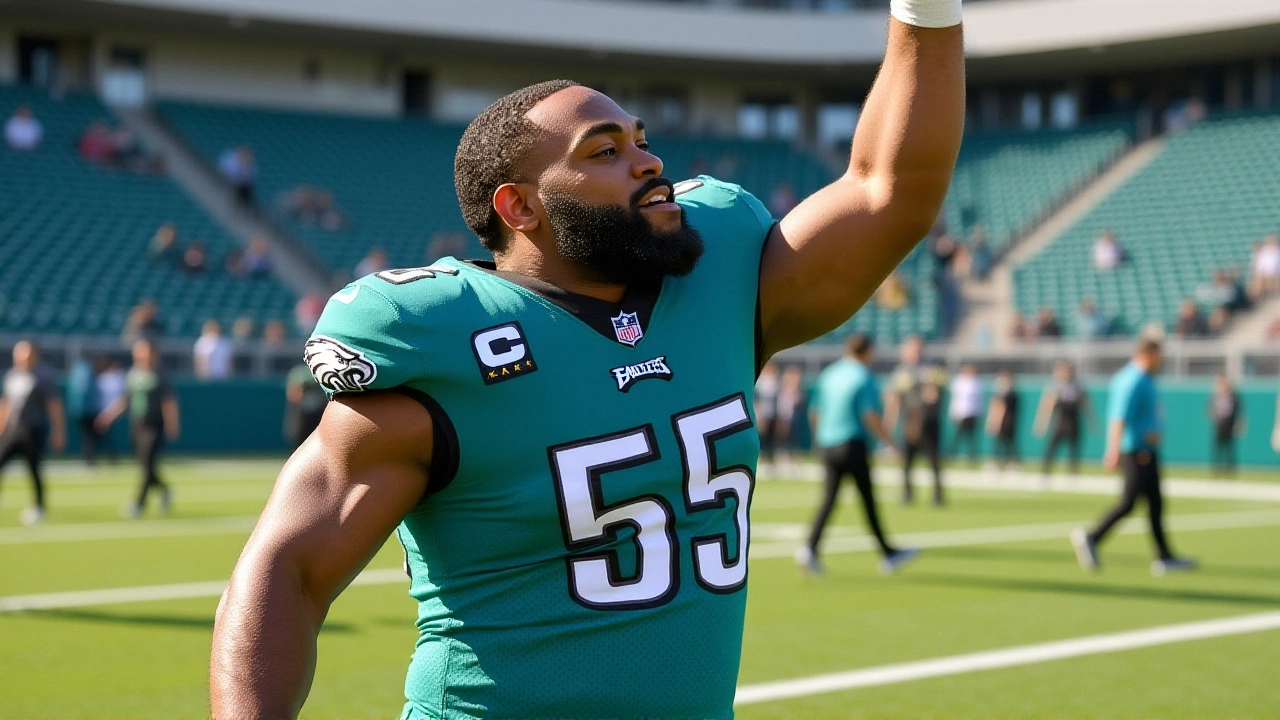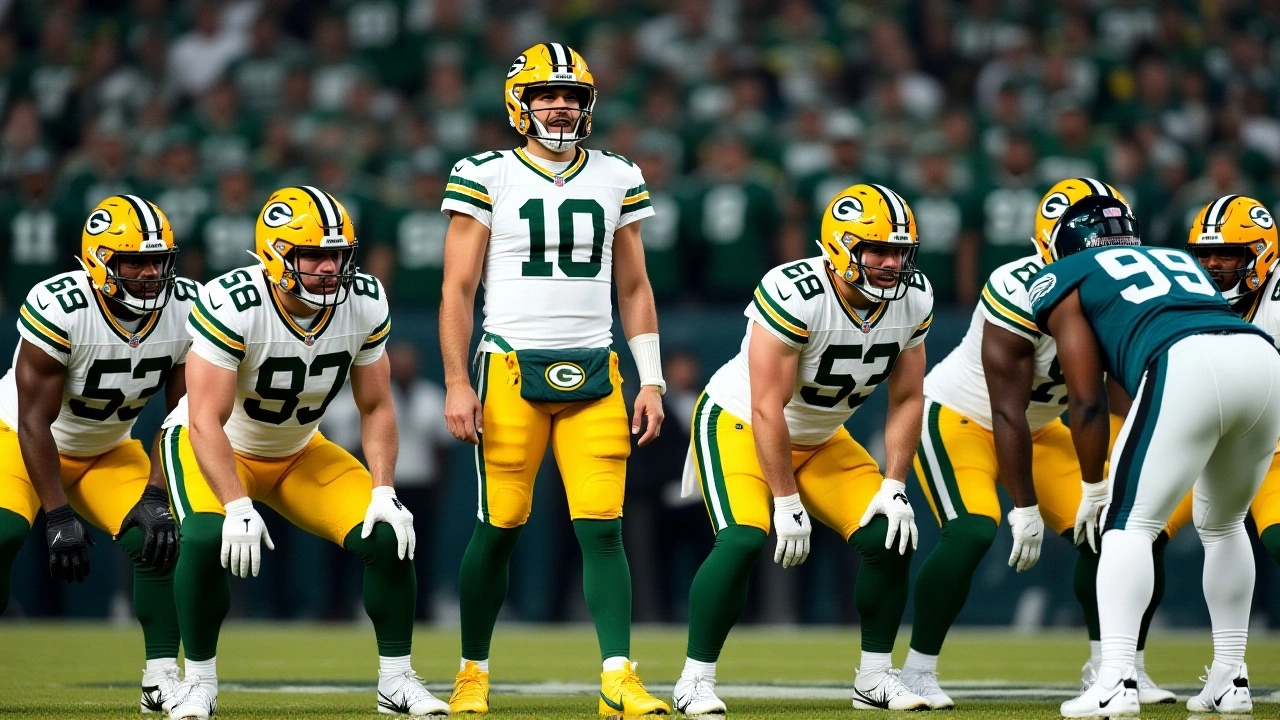The Philadelphia Eagles didn’t need fireworks to win on Monday night—just grit, pressure, and one perfect throw. In a chilly, low-scoring showdown on November 10, 2025, they held the Green Bay Packers to just seven points, pulling off a 10-7 victory that felt more like a siege than a football game. The win, sealed with a 36-yard touchdown pass from Jalen Hurts to DeVonta Smith, pushed the Eagles to 7-2 and sent a message across the NFL: this isn’t the same high-octane offense from last year. This is something quieter, meaner, and far more dangerous.
Defensive Dominance Defines the Night
The numbers tell the story: 261 total yards for Green Bay. Zero touchdowns in the red zone. Three sacks. Seven punts. The Eagles’ defense didn’t just win the game—they buried it alive. For the third straight week, Philadelphia held an opponent under 10 points, a feat unmatched in the NFL this season. Their front seven, led by defensive coordinator Vic Fangio, turned Jordan Love into a passenger, not a pilot. Every time the Packers tried to move the ball, they met a wall. No big plays. No rhythm. Just frustration.
What made it even more impressive? The Eagles didn’t blitz often. They didn’t need to. Instead, they relied on disciplined coverage, perfect gap control, and relentless pressure from the interior line. Analysts noted how the defensive line consistently collapsed the pocket without giving Love time to reset. "It wasn’t about speed," said Bryant McFadden, former Steelers cornerback and CBS Sports analyst, in his post-game breakdown. "It was about timing. They knew where Love was going to look—and they were there before he even started his motion."
The One Big Play That Changed Everything
Offensively, the Eagles were far from flawless. They managed just 287 total yards. Four of their five drives ended in punts. But in the third quarter, with the score tied 7-7 and the Packers’ defense smelling blood, Hurts took the snap from his own 36-yard line. He rolled right, bought two extra seconds, and launched a dart into the corner of the end zone. DeVonta Smith, playing through a hip injury, leapt over Packers cornerback Eric Stokes and hauled it in. The crowd erupted. The scoreboard flipped. And suddenly, the game was theirs.
"That’s what champions do," said Emory Hunt, President of Football Operations at Player Profiler. "They don’t win by outscoring you. They win by making one play when everything else is falling apart. That’s the difference between a good team and a great one."

Coaching Edge and Strategic Adjustments
Head coach Nick Sirianni and his staff made subtle but critical changes after halftime. They shifted from a 4-3 base to a 3-4 hybrid, sliding safety C.J. Gardner-Johnson into the box to spy on Packers running back Aaron Jones. They also doubled down on zone coverage, forcing Love to make quick decisions under duress. The result? Only 11 completions on 26 attempts for Green Bay. Three of those went to tight end Josiah Deguara. The rest? Nothing.
"They knew we were going to try to stretch them vertically," said Packers head coach Matt LaFleur post-game. "But we didn’t adjust fast enough. And when you’re playing a team that’s this disciplined, you can’t afford mistakes."
What This Means for the Playoff Race
For the Eagles, this win isn’t just another notch on the belt. It’s proof they can win ugly. With three straight victories and a 7-2 record, they’re now tied for the best record in the NFC. Their defense ranks No. 1 in points allowed, No. 2 in yards per game, and No. 1 in red zone efficiency. They’re not just contenders—they’re the team other franchises fear.
For the Packers? The loss drops them to 4-5-1, putting them two games behind the Lions in the NFC North. With three of their next four games on the road—including a trip to Kansas City—they’re running out of time to turn things around. Their offense, once feared, now looks stagnant. Love, despite flashes of brilliance, has thrown eight interceptions in his last five games. The magic is fading.

A Legacy in the Making
This was the lowest-scoring Monday Night Football game between these two teams since 2014. It was also the first time since 2017 that the Eagles started 7-2. That year, they went on to win Super Bowl LII. History doesn’t repeat itself—but patterns do. And right now, the Eagles are playing like a team built for November, not just October.
Their defense isn’t flashy. It doesn’t get highlight reels. But it wins games. And in a league where offense dominates headlines, that’s the quietest kind of dominance.
Frequently Asked Questions
How did the Eagles’ defense manage to hold the Packers to just 7 points?
The Eagles’ defense relied on disciplined zone coverage, interior line pressure, and smart adjustments after halftime—especially by shifting safety C.J. Gardner-Johnson into the box to spy on Aaron Jones. They limited Green Bay to just 11 completions and forced Jordan Love into three turnovers, including two key pass deflections in the red zone. The unit recorded three sacks and held the Packers to 2.9 yards per carry.
Why was Jalen Hurts’ touchdown to DeVonta Smith so crucial?
With the Eagles’ offense struggling for most of the game, Hurts’ 36-yard strike to Smith in the third quarter was the only offensive touchdown and the decisive score. It broke a 7-7 tie and shifted momentum permanently. Smith, playing through injury, made a contested catch over coverage, proving the Eagles can still make big plays—even when the offense isn’t clicking.
Is this the best defense in the NFL this season?
Through Week 10, the Eagles lead the NFL in fewest points allowed (13.4 per game), rank second in total yards allowed (298 per game), and are first in red zone defense (42% touchdown rate). Their three straight games under 10 points allowed is the longest such streak in the league this year—and the best by any team since the 2021 Baltimore Ravens.
What does this win mean for the Eagles’ Super Bowl chances?
A 7-2 record with a top-tier defense puts Philadelphia among the top three NFC contenders. Their ability to win low-scoring, defensive battles—unlike last year’s explosive offense—makes them more balanced and harder to predict. If they can maintain this level of play through December, they’ll be a serious threat in the playoffs, especially with home-field advantage likely within reach.
How has the Packers’ offense changed since last season?
Jordan Love has shown flashes, but his inconsistency is glaring: eight interceptions in five games and just 17 touchdowns. The offensive line has regressed, and key receivers like Christian Watson are still recovering from injury. Without a reliable running game or consistent protection, the Packers now rely too heavily on Love’s arm—a dangerous formula against elite defenses like Philadelphia’s.
What’s next for the Eagles and Packers?
The Eagles face the 5-4 Dallas Cowboys next week in a crucial NFC East showdown. A win would put them two games ahead in the division. The Packers travel to Kansas City to face the Chiefs in a Week 11 prime-time matchup—a tough test against a high-powered offense that could expose their shaky defense.

Written by Xander Whittaker
View all posts by: Xander Whittaker